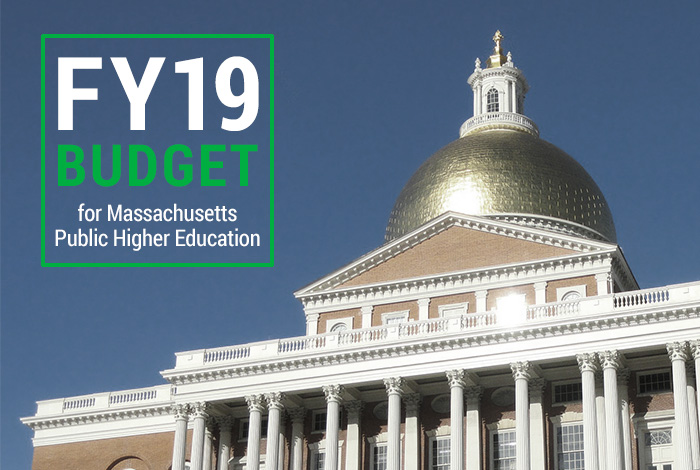
Kicking off the state budget-setting process for public higher education in FY2019, the Massachusetts Board of Higher Education issued its funding recommendations to the Executive Office of Education on December 12, 2017.
The Board of Higher Education’s Budget Recommendations for the fiscal year that begins on July 1, 2018 includes strategic investments in programs that support the goals of increasing student access to college, addressing the affordability gap and promoting student success and college completion.
These investments are funded in part by new revenues enabled by the Casino Gaming legislation enacted in 2011 which sets aside a portion of the tax on gross gaming receipts at the resort casinos for public higher education. Specifically, the law calls for:
With this additional funding, the Board approved a substantial increase of $9M in need-based financial aid to undergraduate students who reside in Massachusetts and are pursuing a program of higher education at a Massachusetts public university or community college. The rationale for this proposed increase has been well-documented. The demand for need-based assistance for low- and moderate-income students has continued to increase while the cost of attending college has continued to rise. As a result, the buying power of an average MASSGrant award—at approximately $750—has been diminished significantly. In 1988, the average grant award was sufficient to cover 85% of a student’s total cost; however, by FY17 the average grant award had declined to where it only covered approximately 9% of a student’s total costs. The proposed increase for FY19 is a major step toward addressing the affordability gap.
The Board recommended $3.75M for the Performance Incentive Fund (PIF), a $1.2M increase over FY18. PIF funding continues to support competitive grants to campuses to make progress on the goals articulated by the BHE. This is a competitive grant program that rewards innovative thinking and evidence-based practices at the campus level, such as the following initiatives:
In FY19, the Board is requesting $150,000 in funding for the implementation of the Campus Safety and Violence Prevention (CSVP) recommendations, which is expected to be codified in statute before the end of FY18. The Board also recommends $180,000 for the first full year cost of implementing the State Approval Reciprocity Agreement (SARA).
These recommendations will be considered by the Executive Office and Governor’s Office as they prepare the Governor’s Budget Recommendation for all of state government.
View the entire FY19 Budget Recommendation ![]() and the full presentation
and the full presentation ![]() .
.